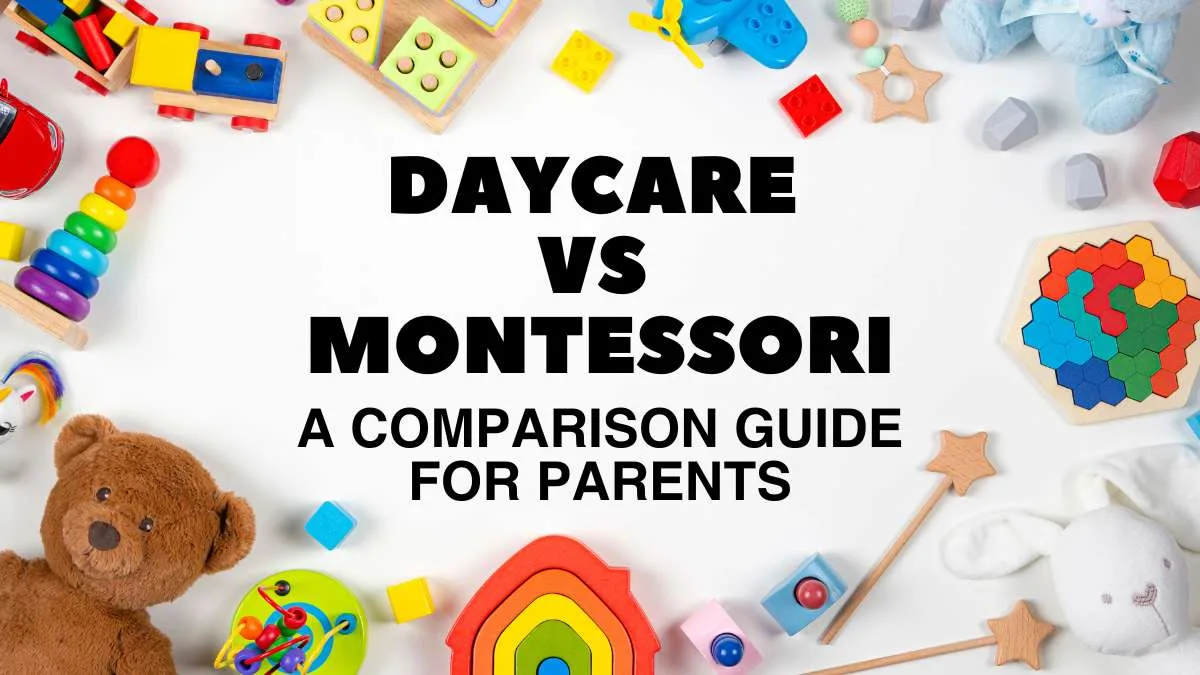As a parent, choosing the right early childhood education program for your child can be an overwhelming decision. There are many different options available, but two of the most popular are traditional daycare and Montessori schools. Both have their advantages and disadvantages, and it’s important to understand the differences before making a decision.
What is a Daycare?
A daycare is a childcare facility that provides care for children during the day while parents or caregivers are at work. Daycare centers can be found in a variety of settings, including schools, community centers, and standalone buildings. They typically offer care for children between the ages of six weeks to five years old.
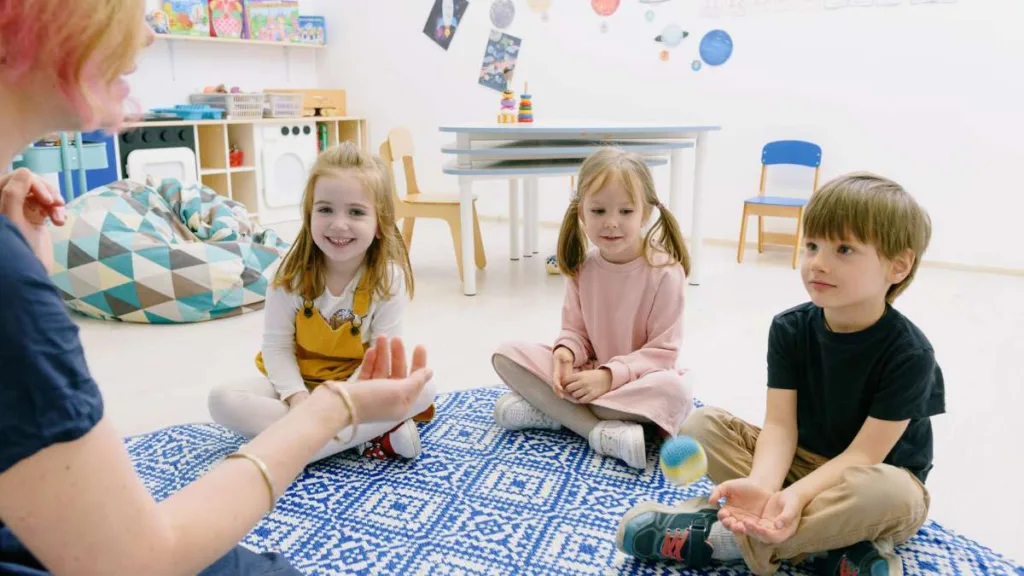
Pros and Cons of Daycare
Pros:
- Daycares are widely available and often more affordable than other types of child care.
- Many daycares offer flexible hours and extended care for parents who need it.
- Daycares often have a structured curriculum and offer a variety of activities for children to participate in.
Cons:
- Daycares may not have the same level of individual attention and focus on academic development as other types of early childhood education programs.
- Staff turnover can be high in some daycares, leading to inconsistency in care.
- Daycares may not offer the same level of emphasis on social and emotional development as other types of early childhood education programs.
What is Montessori?
Montessori is an educational philosophy that was developed by Italian physician Maria Montessori in the early 1900s. Montessori schools focus on creating a child-centered learning environment that encourages exploration and independent learning.
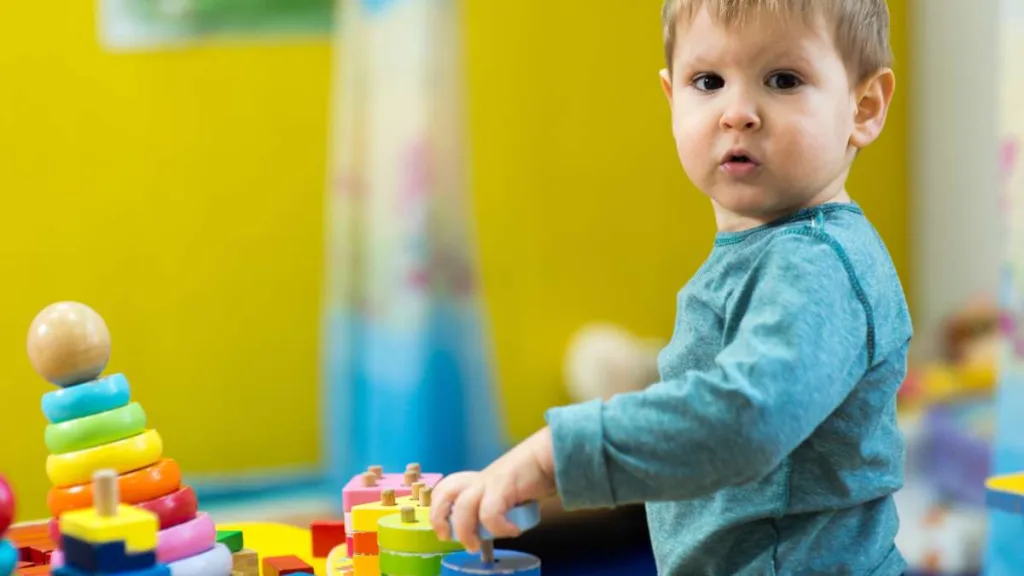
Pros and Cons of Montessori
Pros:
- Montessori schools provide a highly individualized approach to learning that allows children to learn at their own pace.
- Montessori schools place a strong emphasis on social and emotional development, as well as academic achievement.
- Montessori schools often have low student-to-teacher ratios, which allows for a greater level of individual attention.
Cons:
- Montessori schools can be more expensive than other types of child care.
- Some parents may not agree with the Montessori philosophy or find it too unstructured.
- Montessori schools may not provide the same level of supervision and safety as other types of childcare facilities.
Difference Between Montessori and Daycare
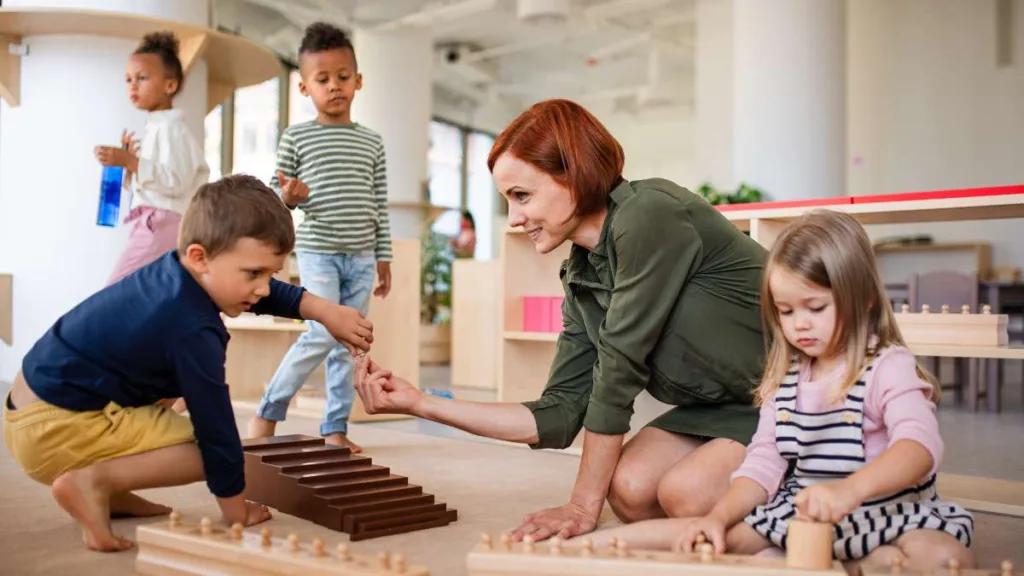
Philosophy and Approach
- Daycares typically have a more structured curriculum and focus on providing care and supervision for children.
- Montessori schools place a greater emphasis on independent learning and exploration and often have a less structured curriculum.
Teaching Style
- Daycares typically have a more teacher-led approach to learning.
- Montessori schools encourage self-directed learning and hands-on exploration.
Environment
- Daycares often have a more traditional classroom setting with desks and tables.
- Montessori schools often have a more open and flexible learning environment with different learning stations and materials.
Teacher Training
- Daycare teachers are typically required to have a certain level of early childhood education training.
- Montessori teachers receive specialized Montessori training and certification..
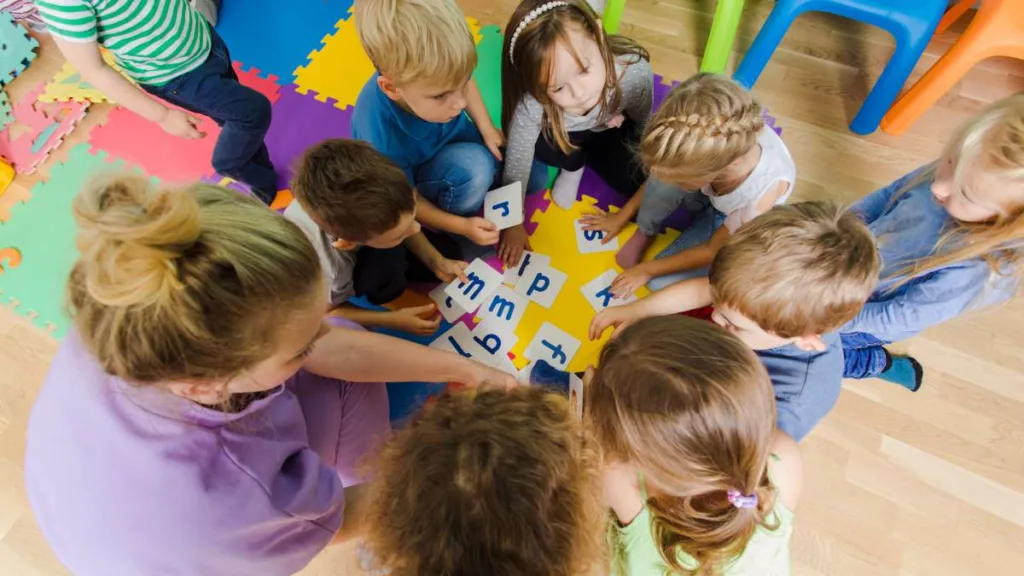
In summary, the main difference between Montessori and daycare is their approach to education. While daycare provides care and supervision for children, Montessori schools focus on fostering independence, creativity, and critical thinking skills through self-directed learning and hands-on exploration. Montessori schools provide a more open and flexible learning environment with different learning stations and materials, and Montessori teachers receive specialized training to support the Montessori approach to education.
Which is Right for Your Child?
Choosing between daycare and Montessori will depend on a number of factors, including your child’s age, personality, and learning style, as well as your family’s budget and schedule.
If you’re looking for a more affordable and flexible childcare option that provides care and supervision for your child, a daycare may be a good choice. However, if you’re looking for a more individualized and academically-focused learning experience for your child, Montessori may be a better fit.
Ultimately, the decision between daycare and Montessori will come down to your individual preferences and your child’s needs. It’s important to visit both types of facilities, speak with staff and teachers, and observe how children interact and learn in each environment.
If you’re considering a Montessori school, it’s important to find a school that is accredited by the Association Montessori Internationale (AMI) or the American Montessori Society (AMS). These organizations ensure that schools meet certain standards of education and quality.
In addition, it’s important to remember that the quality of care and education your child receives will depend on the specific daycare or Montessori school you choose. It’s important to do your research, read reviews, and speak with other parents to find the best fit for your family.
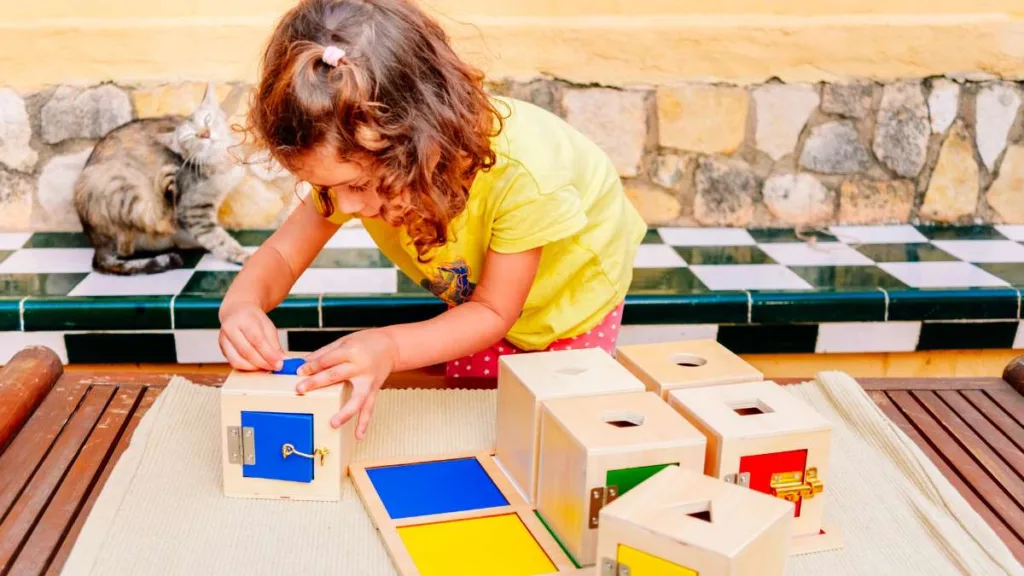
Conclusion
When it comes to early childhood education, there are many options available, including traditional daycare and Montessori schools. Both types of facilities have their advantages and disadvantages, and it’s important to understand the differences before making a decision.
Daycares are more widely available and often more affordable, but may not provide the same level of individual attention or focus on academic development as Montessori schools. Montessori schools provide a highly individualized approach to learning that focuses on social and emotional development, as well as academic achievement, but can be more expensive and may not be a good fit for all children.
Ultimately, the decision between daycare and Montessori will depend on your individual preferences, your child’s needs, and your family’s budget and schedule. By visiting both types of facilities, speaking with staff and teachers, and doing your research, you can find the best fit for your family and give your child the best possible start in life.
For more parenting tips and advice, you can read more articles on our website. We always come up with thoroughly detailed articles on various topics. Some of them are listed below for your reference:
- Toy Story: Exploring the Importance of Toys for Children
- 10 Advantages of Reading Aloud to Children
- The Impact of Screen Time on Kids’ Development and 5 tips to Balance it
- 5 Common Benefits of Outdoor Play for Kids and How to Encourage It.
- Breastfeeding Positions: The 4 Best Breastfeeding Positions for your Baby
- The Impact of Screen Time on Kids’ Development and 5 tips to Balance it
- Top 10 Fun Fitness Games for Children
- Are pregnancy tests accurate? Effectiveness of home pregnancy tests
- Breastfeeding and Alcohol: Every negative aspect You Need to Know
- Why breastfeeding is better than formula: 7 Major reasons
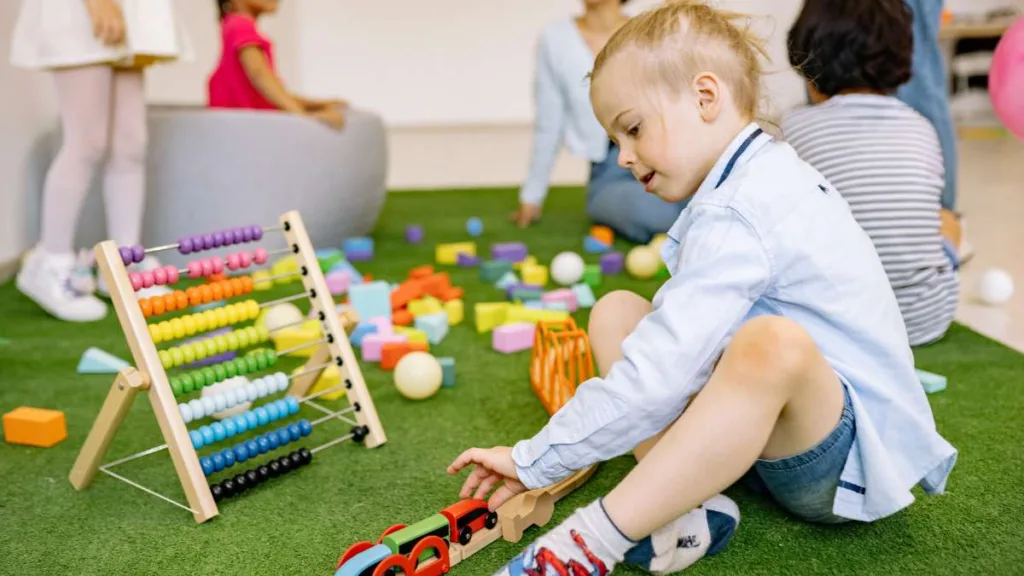
What is the difference in curriculum between daycare and Montessori?
Daycares typically have a more structured curriculum and focus on providing care and supervision for children. Montessori schools, on the other hand, place a greater emphasis on independent learning and exploration and often have a less structured curriculum.
Is Montessori more expensive than daycare?
Montessori schools can be more expensive than daycares due to the specialized training required for Montessori teachers and the unique materials and resources used in the Montessori approach.
Which is better for academic development, daycare or Montessori?
Montessori schools often have a stronger focus on academic development, as they use a range of specialized materials and resources to support learning. However, daycare can also provide a good foundation for academic development through a structured curriculum and teacher-led activities.
How does the learning environment differ between daycare and Montessori?
Daycares often have a more traditional classroom setting with desks and tables. Montessori schools often have a more open and flexible learning environment with different learning stations and materials. Montessori schools provide children with a range of educational materials that are designed to help them explore and learn in a hands-on way.
What qualifications do teachers need in daycare vs Montessori?
Daycare teachers are typically required to have a certain level of early childhood education training. Montessori teachers receive specialized Montessori training and certification. This training is focused on understanding the Montessori philosophy and approach to education, as well as how to create a Montessori learning environment.
